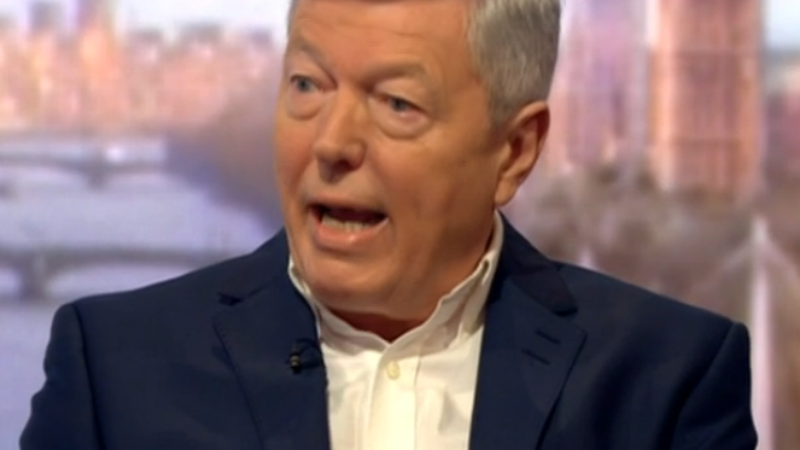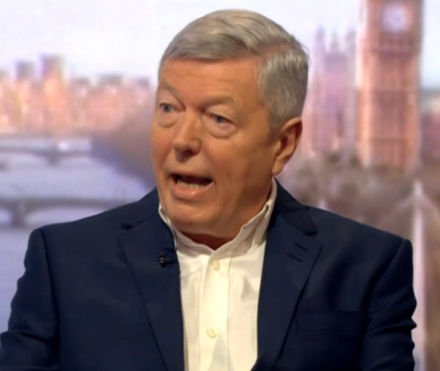

Alan Johnson has branded members of the Leave campaign “extremists” and said they will deter the “moderate” British public, as he joined Jeremy Corbyn to launch Labour In’s short campaign. The former Home Secretary also dismissed accusations that David Cameron’s warnings about the possibility of war were “overblown”.
Speaking at the launch in South London this morning, Corbyn rubbished continuing speculation that he is not really in favour of staying in the EU, saying he is “overwhelmingly in favour of remaining in for the opportunities it brings”, particularly on environmental protection and workers’ rights.
“On June 23 there is a crucial choice that people have to make,” Corbyn said.
“Whether to remain and reform the EU, or whether to walk away from it. The referendum gives us that choice. I believe we have to vote to remain in order to defend investment, defend jobs, defend workers’ rights and defend our environment.
“We face enormous challenges; of climate change, of cyber crime, of global corporations trying to evade taxes. We need to have a strong message that we can actually stand up to defends workers’ rights, but also to deal with the huge challenges of global refugee movements.”
Asked about his personal decision to campaign for an In vote, Corbyn said: “I am overwhelmingly in favour of remaining in for the opportunities its brings, and in particular environmental protection we get, as well as the human rights across Europe.
“The Labour Party has voted overwhelmingly in favour at conference last year, and the vast majority of trade unions and affiliates voted in that direction as well. Not without criticism, but on the basis that achieve more by co-operating with colleagues across national borders.”
Johnson, who leads the Labour In campaign, praised Corbyn’s nuanced approach to the issue and his stress on the need to reform the EU – saying that those who took a hardline stance on the Leave side were “extremists”.
Johnson said that Corbyn’s view is “very straightforward: his line is that the European Union is the best framework for our future success. He doesn’t think it’s perfect – neither does David Cameron, as you’ve probably noticed.
“The people who are on the Brexit side can’t give the EU any credit at all. So when it comes to peace on our continent they say it’s all to do with NATO. We say actually NATO played a role, so did the EU.”
He added: “We are the reasonable people. I think in the Leave side, they’re the extremists on this. So I think it’s perfectly valid to make the speeches Jeremy makes. We say reform is a process it’s not an event. There is no perfect institution.”
Pushed on his “extremists” comment, Johnson said: “I think it’s an extreme view that there is absolutely nothing good about the European Union, about this huge market, about the co-operation that goes on”.
He said that taken such an approach was at odds with the majority of the British public:
“They can’t find anything good to say and I think that’s extreme. We can all find things that are wrong with the European Union, but they can’t find anything that’s right, and that suggests a certain mentality that is not rational and not balanced. Most British people have a rational, balanced, moderate approach to this question.”
Johnson also welcomed the news that Gordon Brown would be making a speech later this week on the future jobs that reply on the EU, saying that the former Prime Minister has “got a very important role to play. He is the man more than anyone who kept us out of the single currency.”
In a boost to the wider Stronger In campaign, Johnson said he would be willing to represent the Remain camp in upcoming TV debates, but ruled out the notion of debating the issue with the Labour Leave campaign, saying that “the Labour Leave campaign’s tiny. The Labour Leave campaign is a handful.”




More from LabourList
Government abandons plans to delay 30 local elections in England
‘The cost of living crisis is still Britain’s defining political challenge’
‘Nurses are finally getting the recognition they deserve’